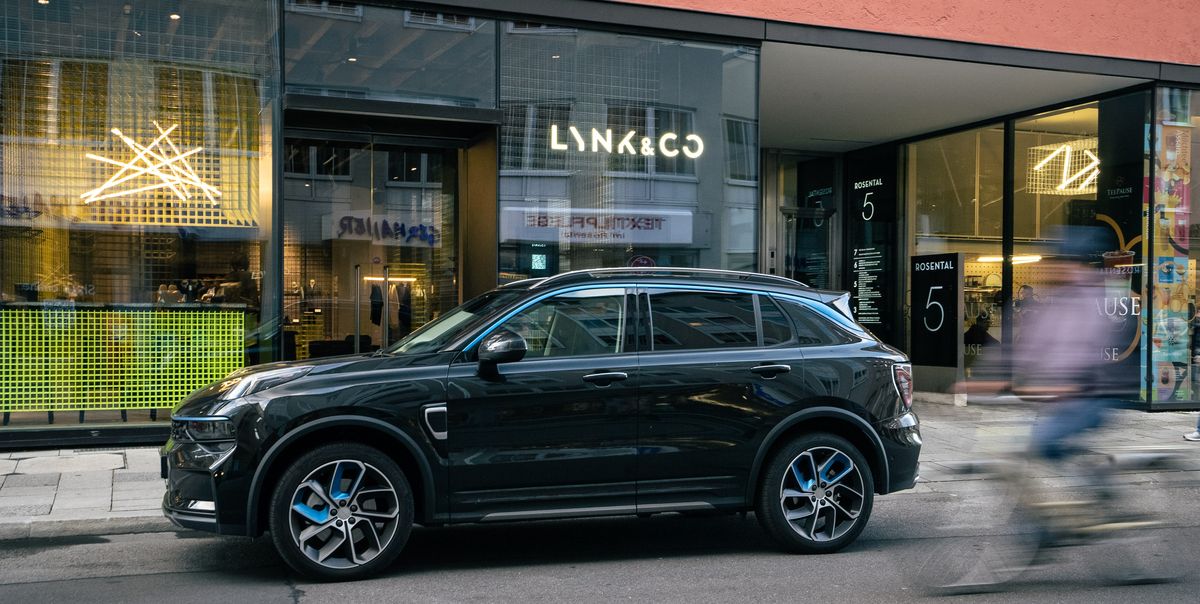Whatever Happened to Lynk & Co, the Promising EV Startup?

Lynk & Co is an EV brand from Chinese automaker Geely Group that was once a strong contender to cross into the U.S. market.Its first model was the 01 crossover (pictured above), which went on sale in China in late 2017.At the time, we were told sales in the U.S. would start in 2020.
When we last checked in with Lynk & Co, the Chinese carmaker—part of Geely Group’s automotive empire—was planning to expand its operations from China and Europe into America with the intention of opening an outpost in San Francisco by 2020. That was a couple of years ago, and it obviously has not happened—but that’s not because the company has lost interest.
CEO Alain Visser remains focused on bringing his EVs here. “My ambition, without a concrete plan, is to go to the U.S.,” he told Car and Driver, speaking with us at Lynk & Co headquarters in Gothenburg, Sweden. “I’m convinced there’s a market for our offering. Not everywhere, but in California, New York, and some other places.”
Lynk’s structure is unusual. For a flat fee of around $500 per month, users acquire the use of a car, including all insurance and maintenance fees. There’s no commitment, so they can keep the car for one month or any other number of months. If they keep it for a year, it gets replaced with a new model. And with the touch of a button on their infotainment screen, users can offer up their car to share with anyone who is a member of the Lynk & Co app, for any duration—hour, day, week, month—at whatever price the market will bear. So, it’s like Airbnb for cars, but Lynk doesn’t even take a cut.
Currently, Lynk & Co. operates in seven countries in Europe with 120,000 users on the app there and more than 17,000 cars on the road. In China, the company claims to be selling 150,000 cars per year.
Plan B: Texas, Not California
In keeping with the company’s offbeat nature, Visser now hopes to open the first Lynk USA brand experience center—”club,” in Lynk parlance—not on the coasts, but in Texas. “If I could do it now, I would open a club in Austin, without a car,” Visser said, though he admits he’s never visited the city. “I would just build the brand, the experience, talk about what it is we stand for, build the activities that we do in the clubs here in Europe. And then a year later, maybe add a car.”
So what has prevented the company from doing just that? Well, the brand’s unique selling proposition wasn’t operational in 2020. “The sharing functionality wasn’t ready then,” he said. “We would have had just the concept of you use a car for a month, you pay the flat fee. And we wanted to wait because we think that the sharing is really what makes the business model sustainable.”
Lynk & Co

But now that that works—we saw on the Lynk App that there are hundreds of thousands of members throughout seven European countries looking to loan or borrow a car—what’s the holdup? Part of it is the U.S. insistence on an independent, franchise-based dealer network, which Lynk eschews—it does 99 percent of its business online. Visser, however, believes there might be a workaround. “We would almost be registered in the U.S. as a rental car company more than a car-selling enterprise,” he said. “We won’t have dealerships. But if Tesla had problems as an American company in the U.S., it would be definitely difficult for us.”
If creating interest within the world’s second-largest automobile market for a completely unknown, garishly styled compact crossover made in China and sold with a wholly unfamiliar ownership model sounds like a challenge, Visser seems up for it.
“We launched our first ever club in Amsterdam (pictured above), which is the most car-hating city in Europe,” he said. “And we said, let’s go there because it’s a clear signal that we go against the grain of the car industry. And I think I see Austin a bit like that. It’s in Texas, it’s the pickup state. So we start there.” We shall see.
This content is imported from {embed-name}. You may be able to find the same content in another format, or you may be able to find more information, at their web site.
This content is created and maintained by a third party, and imported onto this page to help users provide their email addresses. You may be able to find more information about this and similar content at piano.io



